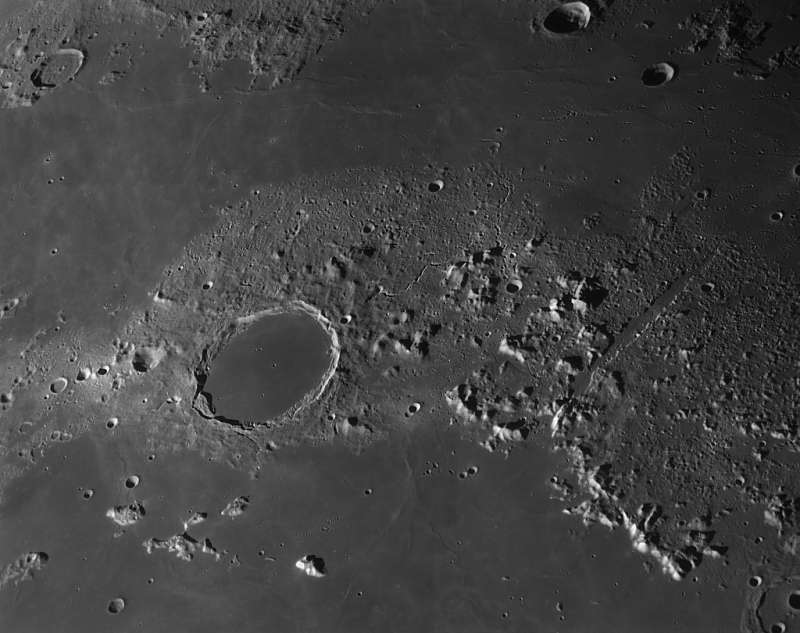
|
Credit & Copyright: Richard Bosman
Explanation:
The dark-floored, 95 kilometer wide crater Plato and
sunlit
peaks
of the lunar Alps (Montes Alpes) are highlighted in this
sharp digital snapshot of the
Moon's surface.
While the Alps
of planet Earth were uplifted over millions of
years as continental plates slowly collided, the lunar Alps were likely
formed by a sudden collision that created the giant
impact
basin known as the Mare Imbrium
or Sea of Rains.
The mare's generally smooth, lava-flooded floor is seen
below the boardering mountain range.
The prominent straight feature cutting through the mountains
is the lunar Alpine Valley (Vallis Alpes).
Joining the Mare Imbrium and northern Mare Frigoris (Sea of Cold)
the valley extends toward the upper right, about 160 kilometers long
and up to 10 kilometers wide.
Of course, the large, bright
alpine
mountain below and right of the valley is named
Mont Blanc.
The tallest of the lunar Alps, it
reaches over 3 kilometers above the surface.
Lacking an atmosphere, not to mention snow,
the lunar Alps are probably not an ideal location for a winter
vacation.
Still, a 150 pound skier
would
weigh a mere 25 pounds
on
the Moon.
News:
Orion Flight Coverage
|
January February March April May June July August September October November December |
| ||||||||||||||||||||||||||||||||||||||||||||||||
NASA Web Site Statements, Warnings, and Disclaimers
NASA Official: Jay Norris. Specific rights apply.
A service of: LHEA at NASA / GSFC
& Michigan Tech. U.
Based on Astronomy Picture
Of the Day
Publications with keywords: Moon
Publications with words: Moon
See also:
